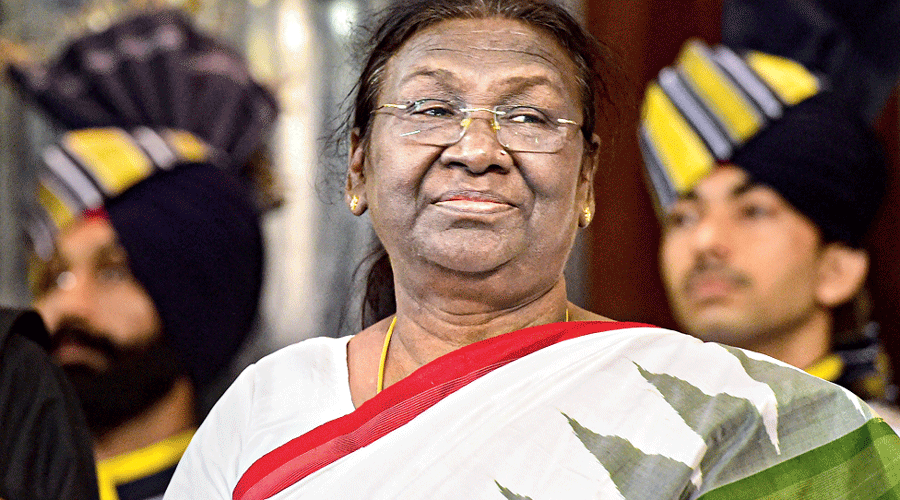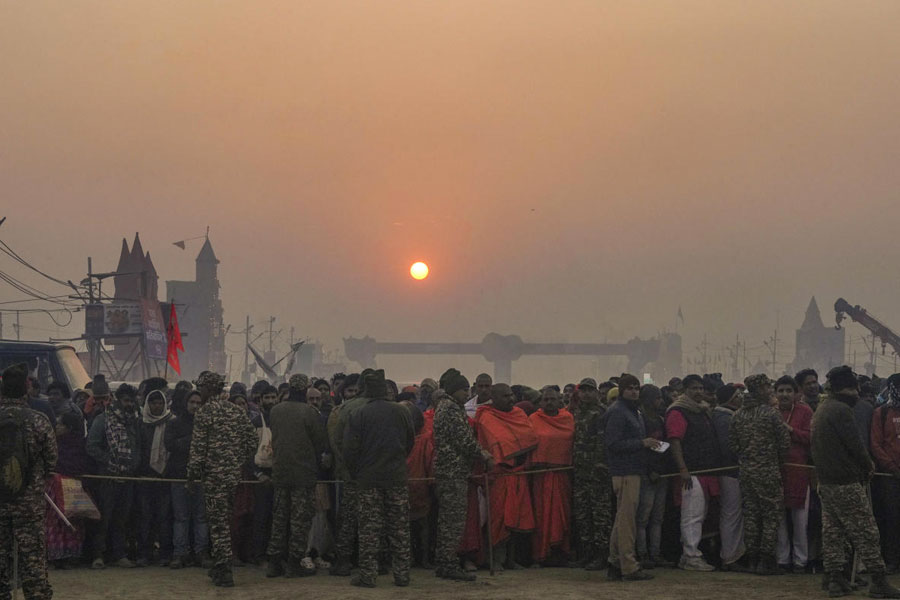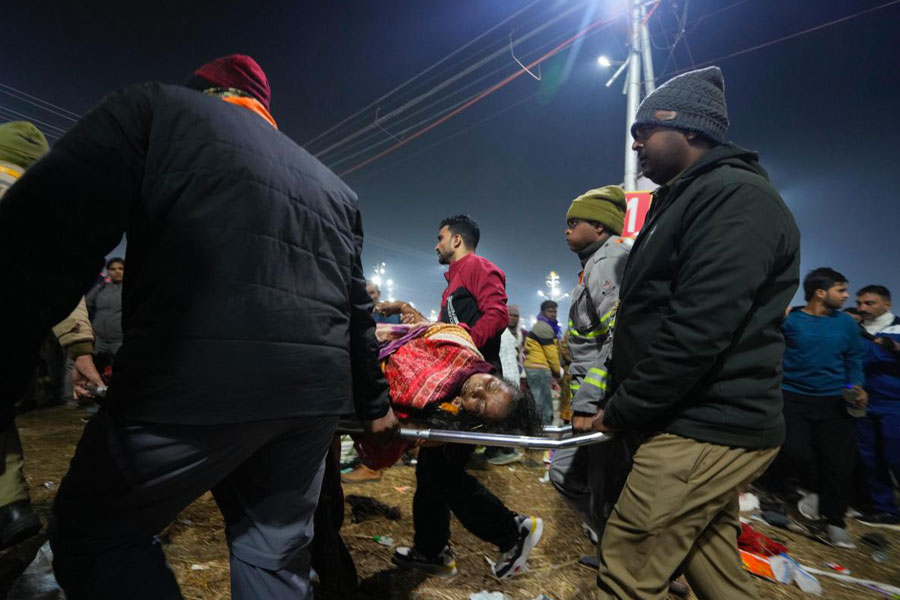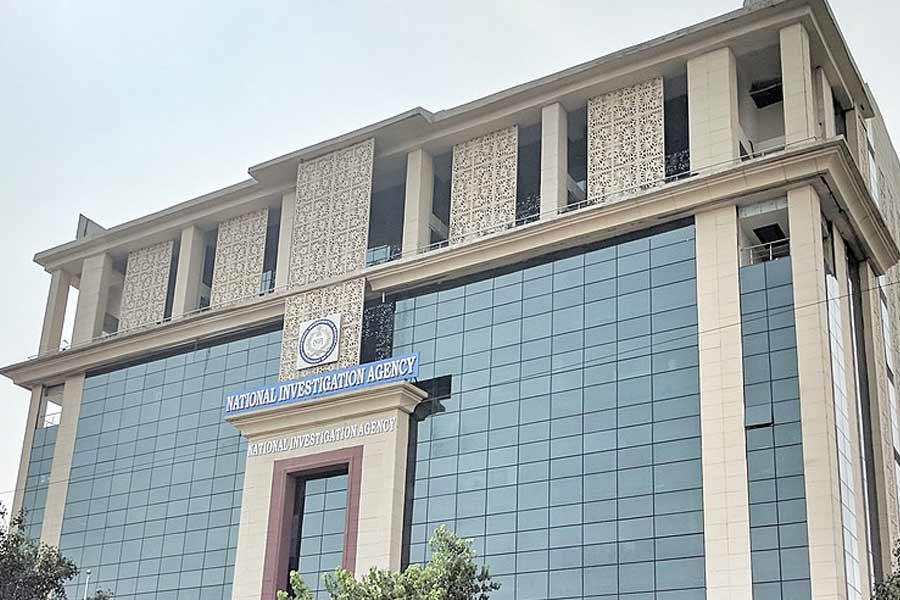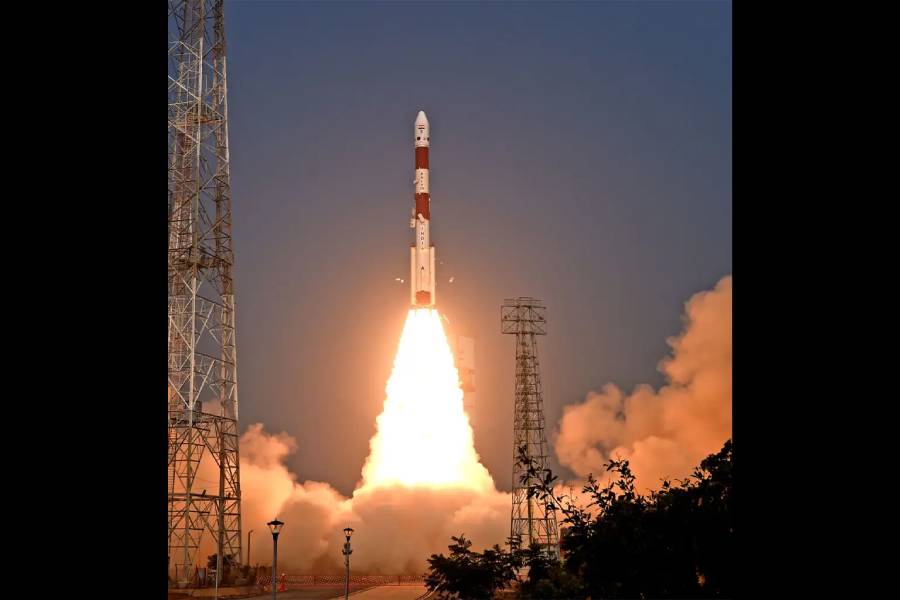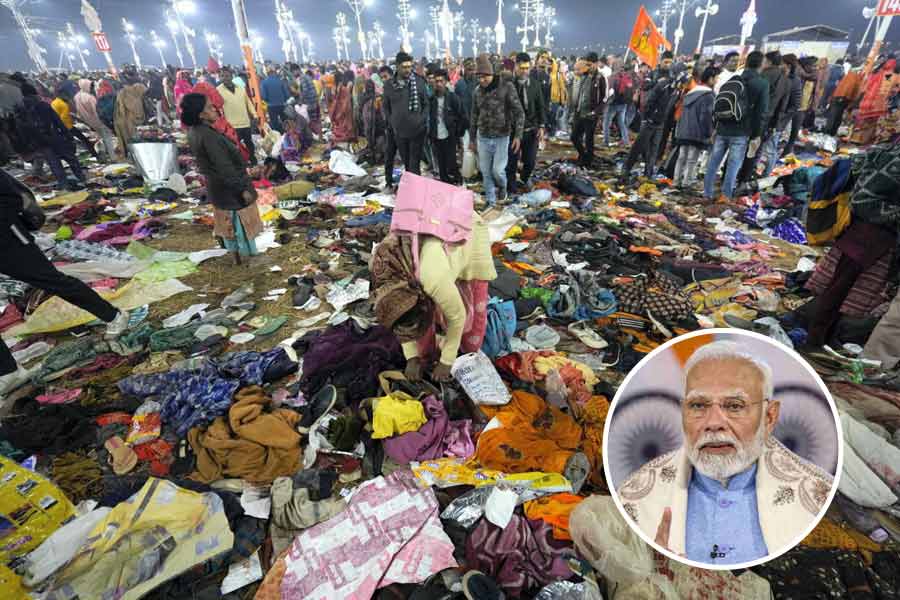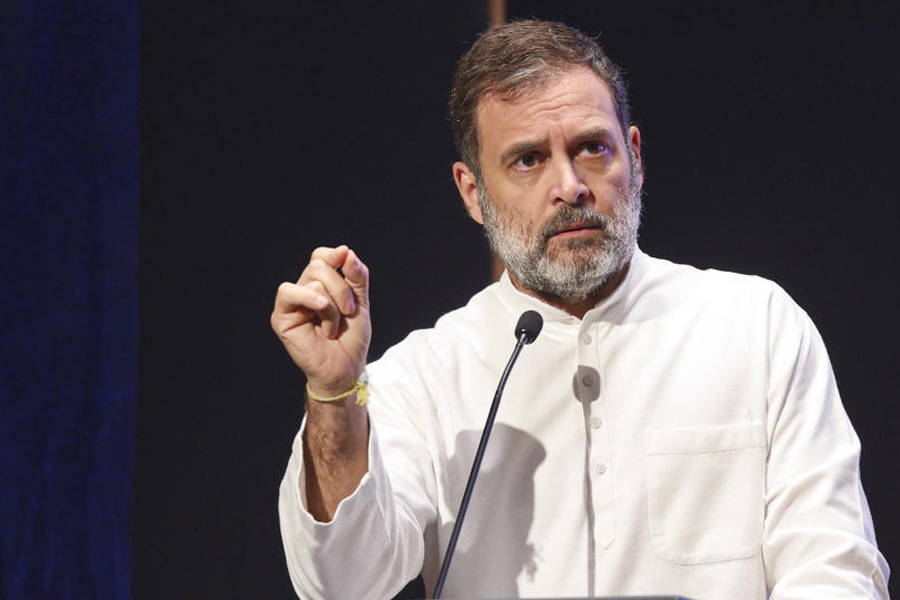Droupadi Murmu assumed office on Monday as the 15th President, greeting the nation with “johar” — the preferred salutation among tribal communities of eastern India — that sought to signal the symbolism and significance of the reins of the republic being entrusted in a representative of a people regarded as the earliest inhabitants of India but marginalised over time.
She followed it up with the traditional “namaskaar” before going on to deliver her assumption-of-office speech which, otherwise, followed the Narendra Modi government’s script — punctuated with some of the ruling dispensation’s favoured catchphrases like “Vocal for Local” and “Digital India”.
Murmu was administered the oath of office by Chief Justice of India N.V. Ramana in the presence of the country’s political spectrum in the Central Hall of Parliament. Former President Pratibha Patil, the country’s first woman to hold the post, was also present at the programme that was followed by a tri-services guard of honour at the Rashtrapati Bhavan.
Beginning on a personal note, Murmu said: “I belong to tribal society. I have got the opportunity to rise from serving as a ward councillor to becoming the President of India. This is the greatness of India, the mother of democracy. It is a tribute to the power of our democracy that a daughter born in a poor house in a remote tribal area can reach the highest constitutional position in India.”
Underscoring the significance of the election of a person from the tribal community as President in the 75th year of India’s Independence, she said: “We have to work at a fast pace in this amritkal to fulfil the expectations of our freedom fighters from the citizens of Independent India. In these 25 years, the path to attain the goals of amritkal will proceed on two tracks — sabka prayas aur sabka kartavya (everyone’s effort and everyone’s duty).”
The Modi government has been touting the 25 years up to the 100th year of Independence as amritkal, or a golden period.
Another slogan of the government — “Ek Bharat Shrestha Bharat (One India, best India)” — found its way into Murmu’s speech while she dwelt on the nation’s diversity.
“In our country full of diversities, we are engaged in the making of ‘Ek Bharat Shrestha Bharat’ by adopting many languages, religions, sects, food habits, life styles and customs,” she said.
Like her predecessor Ram Nath Kovind did on Sunday in his farewell address to the nation, Murmu made a mention of the country’s first Prime Minister, Jawaharlal Nehru, listing him among those who “taught us to keep national pride as paramount” during the freedom struggle.
She also named women icons like Rani Lakshmi Bai, Rani Velu Nachiyar, Rani Gaidinliu and Rani Chennamma. Murmu referred to the tribal contributions in the freedom struggle —the Santhal revolution, Paika revolution, Kol revolution and the Bhil revolution — besides the sacrifice of “Dharti Aaba (Father of the land) Bhagwan Birsa Munda Ji”.
The BJP sought to squeeze political mileage out of the “watershed moment” of the country getting its first tribal woman President. Home minister Amit Shah wrote newspaper articles in English and Hindi to give all the credit to Prime Minister Modi. Shah said Murmu was the result of “Modi’s commitment” to tribals as he accused previous Congress governments of hardly making any effort to bring the community into the national mainstream.
The BJP’s Twitter handle put out videos of “victory celebrations”, hailing Modi for making a tribal woman from a remote village the President.
“The entire nation watched with pride as Smt Droupadi Murmu Ji took oath as the President of India,” Modi tweeted. “Her assuming the Presidency is a watershed moment for India especially for the poor marginalised and the downtrodden.”
BJP president J.P. Nadda said Murmu’s first address to the nation as a “people’s President” encapsulated not just the significance of the “historic moment” but the “spirit of New India”. The BJP has drawn up an elaborate programme to use the symbolism of Murmu as President to expand its support base among tribals.

